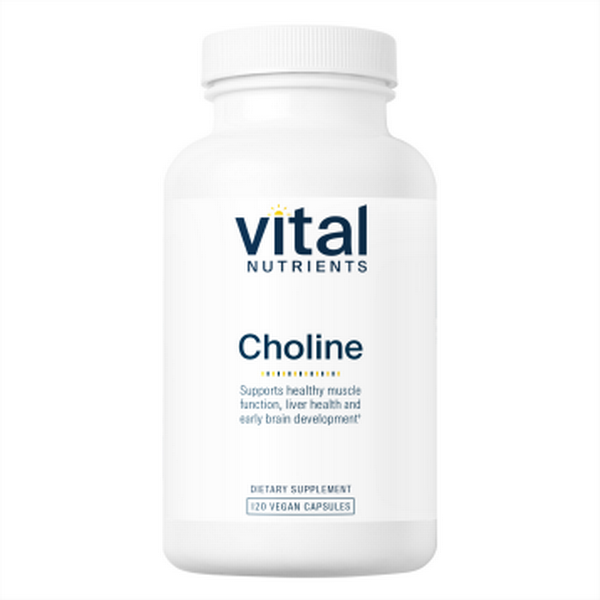Acupuncture Denver Blog
Comprehensive health, empowerment, joy, and happiness.
A Baseline Fertility Workup
Lab Tests You Need & When to Request Them
By Jane Gregorie - September 15, 2024
When to Consider Fertility Testing
For most couples, fertility testing becomes a consideration after about a year of trying to conceive without success. However, if you're over 35, it's advisable to seek testing after six months. Early testing might also be necessary if you have known health conditions or menstrual irregularities that could impact fertility, like irregular cycles, a short luteal phase, abnormal uterine bleeding, or a family history of early menopause/premature ovarian failure (POF).
The Basics of Female Fertility Testing
Fertility in women is influenced by several factors, including the health of the ovaries, patency of fallopian tubes, and condition of the uterus, as well as hormone levels. Here's a look at the basic tests involved in assessing female fertility:
1. Ovulation Testing:
- What It Is: One of the first steps in female fertility testing is determining whether you're ovulating regularly. Ovulation is when the ovary releases an egg, and it typically occurs once a month.
- How It’s Done: This can be assessed through blood tests that measure hormone levels, such as progesterone (typically tested 7 days past ovulation), or by tracking your menstrual cycle. At-home ovulation predictor kits (OPKs) can also be useful, as they detect the surge in luteinizing hormone (LH) that triggers ovulation. LH surge happens 24-48 hours prior to ovulation. You can have a surge without ovulation happening, especially in cases of PCOS (Polycystic Ovarian Syndrome) since LH levels can be high in this case throughout the cycle, but if you have full flow menses, most likely you are ovulating about 11-14 days prior to that.
2. Hormone Testing
- What It Is: Hormone levels play a crucial role in fertility. Hormone tests can provide insights into ovarian reserve (how many eggs are left in the ovaries) and the overall balance of reproductive hormones.
- How It’s Done: Blood tests are conducted to measure levels of key hormones, including Follicle Stimulating Hormone (FSH), Estradiol, Anti-Müllerian Hormone (AMH), Thyroid-Stimulating Hormone (TSH), and Prolactin (PRL). Abnormalities in these levels can indicate issues like diminished ovarian reserve, PCOS, ovulation issues or thyroid problems.
- Important note- FSH, LH, and Estradiol should be drawn on cycle days 2-4 (ideally CD 3) in order to get and accurate assessment of these levels. Usually AMH is drawn then as well. Progesterone should be tested 7 days post ovulation (not just on cycle day 21 as is often suggested).
3. Ultrasound Scans
- What It Is: An ultrasound scan can help visualize the reproductive organs to ensure that there are no structural issues affecting fertility.
- How It’s Done: A transvaginal ultrasound is commonly used to examine the ovaries and uterus. This test can detect problems like ovarian cysts and fibroids as well as to check ovarian reserve by examining the number of antral follicles in the ovaries on cycle day 3. A saline ultrasound (SHG) or hysteroscopy is needed to check for smaller uterine anomalies like polyps or a septum.
4. Hysterosalpingography (HSG)
- What It Is- HSG is a specialized X-ray used to check if the fallopian tubes are open and to assess the shape of the uterus.
- How It’s Done**: During the procedure, a dye is injected through the cervix via a catheter and into the uterus, and X-rays are taken to see how the dye moves through the uterus and fallopian tubes. Blockages or abnormalities can be identified with this test.
5. Ovarian Reserve Testing
- What It is: This test assesses the quantity and quality of a woman's remaining eggs, which can give an indication of her fertility potential.
- How It’s Done: AMH levels, FSH/Estradiol levels on day 3 of the menstrual cycle, and an antral follicle count via ultrasound are commonly used to evaluate ovarian reserve.
The Basics of Male Fertility Testing
Male fertility is equally important, as male factors contribute to about 40-50% of infertility cases. Basic male fertility testing focuses primarily on semen analysis:
1. Semen Analysis
- What It Is: The semen analysis is the cornerstone of male fertility testing, providing information about the quantity, shape, and movement of sperm.
- How It’s Done: The test is conducted by examining a sperm sample under a microscope. The analysis evaluates several factors, including sperm count, motility (how well the sperm move), morphology (the shape of the sperm), and the volume of semen. A low sperm-count or poor motility can significantlyimpact fertility.
2. Hormone Testing
- What It Is: Just like in women, hormone levels can affect male fertility. Hormone tests can reveal underlying issues like low testosterone or other hormonal imbalances.
- How It’s Done: Blood tests are used to measure levels of testosterone, Follicle Stimulating Hormone (FSH), and Luteinizing Hormone (LH).
3. Physical Examination
- What It Is: A physical examination by a urologist or fertility specialist can identify potential issues such as varicoceles (enlarged veins in the scrotum), which can affect sperm production and motility.
- How It’s Done: The doctor will check for signs of physical abnormalities in the reproductive organs.
What to Expect During the Testing Process
Fertility testing can be an emotional process, but it's a critical step in understanding your reproductive health. Initially, your healthcare provider will take a detailed medical history and discuss any symptoms or concerns you might have. Both partners should ideally be tested simultaneously to quickly identify any potential issues.
The testing process may take several weeks, depending on the types of tests required and the results. Some tests, like hormone levels, need to be conducted at specific times (ie cycle day 3 for FSH, LH, and estradiol) in a woman’s menstrual cycle, which can extend the timeline.
Moving Forward
Once the tests are completed, your doctor will review the results with you and discuss potential next steps. This could range from lifestyle changes to enhance fertility, to more advanced fertility treatments like Intrauterine Insemination (IUI) or In Vitro Fertilization (IVF).
Fertility testing is just the beginning of your journey towards building a family. By understanding your options and taking proactive steps, you can approach this journey with greater confidence and hope.
Whether you're just starting to consider testing or are already in the midst of it, remember that you're not alone. Many couples go through this process, and with the right information and support, you can find the path that's right for you. Here at Acupuncture Denver, we frequently recommend labs since we are so well-versed in both Eastern and Western fertility diagnoses and can also interpret these labs if you have not yet been able to discuss them with your medical provider. It’s vital to seek out providers who know how to interpret fertility testing or who can suggest testing based on signs and symptoms, medical history, or cycle irregularities. We’ve supported thousands of patients from start to finish through this process and helped so many build the families of their dreams. It’s an honor to be both acupuncturists and guides who can support our patients through every step of the way so that both Eastern and Western diagnosis is accurate, and time is never wasted when further testing is indicated.
The Benefits of Choline During Pregnancy
A Vital Nutrient for Mother and Baby
By Jane Gregorie - June 16, 2024
Pregnancy is a critical period where maternal nutrition significantly impacts the health and development of the baby. While many are familiar with the importance of nutrients like folic acid and iron during pregnancy, choline is an essential but often overlooked nutrient that plays a crucial role in fetal development. In this blog post, we'll explore the benefits of choline during pregnancy and provide research-backed insights into why this nutrient should not be neglected.
We recommend that all our pregnant patients take at least 450-550mg of extra Choline in pregnancy and during breastfeeding. I got obsessed with Choline after reading Hidden Valley Road, the book that has now been turned into a Netflix docu-series Six Schizophrenic Brothers, about the Galvin family from Colorado Springs. In the book, it detailed the importance of Choline in reducing the expression of the mutation this family shared and how it also affects placental health. Since we have seen so many older women who have experienced pre-eclampsia, it made me look further into choline as a possible preventative treatment for pre-eclampsia and the research I found, especially this NIH Study, seems to bear that out: https://www.ncbi.nlm.nih.gov/pmc/articles/PMC6722688/
What is Choline?
Choline is a water-soluble nutrient that is often grouped with the B vitamins. It is essential for various bodily functions, including the synthesis of phospholipids (critical components of cell membranes), neurotransmitter synthesis (important for brain function), and methylation processes (vital for gene expression). The body can produce some choline, but not in sufficient amounts, making dietary intake crucial.
Five Benefits of Choline During Pregnancy
1. Brain Development and Cognitive Function
One of the most significant benefits of choline during pregnancy is its role in fetal brain development. Research has shown that adequate choline intake is crucial for the development of the hippocampus, the brain region responsible for memory and learning. A study conducted by Caudill et al. (2018) found that higher maternal choline intake during the third trimester was associated with improved cognitive function in infants at 7 and 13 months of age .
2. Prevention of Neural Tube Defects
Choline is vital for neural tube closure during early fetal development, which occurs within the first few weeks of pregnancy. Neural tube defects (NTDs), such as spina bifida, are serious birth defects that affect the spine and brain. Adequate choline intake has been linked to a reduced risk of NTDs. A study published in the American Journal of Epidemiology indicated that women with higher choline intake had a significantly lower risk of giving birth to babies with NTDs .
3. Liver Health
During pregnancy, the liver plays a crucial role in metabolizing nutrients and maintaining overall health. Choline deficiency can lead to liver dysfunction, including fatty liver disease. Ensuring adequate choline intake helps support liver health and function, which is vital for both the mother and the developing fetus .
4. Placental Function
The placenta is the lifeline between mother and baby, facilitating nutrient and oxygen exchange. Choline contributes to the structural integrity of cell membranes and is essential for the formation and function of the placenta. Proper placental function is crucial for a healthy pregnancy and fetal development .
5. Reduced Risk of Preterm Birth
Emerging research suggests that choline may help reduce the risk of preterm birth. A study by Zeisel (2013) found that higher choline intake during pregnancy was associated with a lower incidence of preterm births. This finding highlights the importance of choline in supporting full-term pregnancies and reducing complications associated with prematurity .
Dietary Sources of Choline
The recommended adequate intake (AI) of choline for pregnant women is 450 mg per day. However, many pregnant women do not meet this requirement through diet alone. Foods rich in choline include:
- Eggs: One large egg contains about 147 mg of choline.
- Meat and Poultry: Beef liver, chicken, and turkey are excellent sources.
- Fish: Salmon and cod provide substantial amounts of choline.
- Dairy Products: Milk and yogurt contain moderate amounts of choline.
- Legumes and Nuts: Peanuts and soybeans are plant-based sources of choline.
Choline is a critical nutrient for pregnant women, contributing to the healthy development of the baby’s brain, preventing neural tube defects, supporting liver and placental function, and potentially reducing the risk of preterm birth. Despite its importance, many pregnant women may not be getting enough choline through their diets. Therefore, it is essential to be mindful of choline intake and consider dietary adjustments or supplements if necessary. We recommend 450-550 mg per day with food and keep Choline in stock for all of our pregnant and breastfeeding clients.
Ensuring adequate choline intake during pregnancy can have long-lasting benefits for both mother and child, making it a key nutrient for a healthy pregnancy.
References:
1. Caudill, M. A., Strupp, B. J., Muscalu, L., Nevins, J. E. H., & Canfield, R. L. (2018). Maternal choline supplementation during the third trimester of pregnancy improves infant information processing speed: a randomized, double-blind, controlled feeding study. *The FASEB Journal*, 32(4), 2172-2180.
2. Shaw, G. M., Carmichael, S. L., Yang, W., Selvin, S., Schaffer, D. M., & Finnell, R. H. (2004). Choline and risk of neural tube defects in a folate-fortified population. *American Journal of Epidemiology*, 160(2), 102-109.
3. Zeisel, S. H. (2006). Choline: critical role during fetal development and dietary requirements in adults. *Annual Review of Nutrition*, 26, 229-250.
4. Best, K. P., Gold, M., & Kennedy, D. (2016). Omega-3 long-chain polyunsaturated fatty acids for preventing preterm birth. *The Cochrane Database of Systematic Reviews*, (10).
5. Zeisel, S. H. (2013). Nutritional importance of choline for brain development. *Journal of the American College of Nutrition*, 22(4), 321-329.
Magnesium for Fertility & Pregnancy
Spotlight on My Favorite Supplement!
By Jane Gregorie - April 28, 2024
When it comes to maintaining optimal health during fertility and pregnancy, the importance of a well-rounded diet and appropriate supplementation cannot be overstated. Among the supplements we frequently recommend for fertility and a healthy pregnancy, magnesium stands out for its critical roles.
For those trying to conceive, magnesium might just be the boost you need. This mineral plays a significant role in reproductive health for several reasons:
1. Hormonal Regulation: Magnesium helps regulate the pituitary gland, which produces follicle-stimulating hormone (FSH), luteinizing hormone (LH), and thyroid hormones, all crucial for fertility. By balancing these hormones, magnesium aids in promoting optimal reproductive function.
2. Improved Egg Quality and Ovulation: Adequate magnesium levels are associated with better egg production and quality. It also supports the process of ovulation, making it a vital nutrient for those facing challenges in conceiving.
3. Stress Reduction Stress is a well-known factor that can negatively affect fertility. Magnesium has natural calming properties that help reduce stress and anxiety levels, thereby potentially improving fertility outcomes.
In pregnancy, magnesium continues to play a crucial role throughout the gestation period. Its benefits during pregnancy include:
1. Prevention of Eclampsia and Preeclampsia: Magnesium is often used in medical settings to manage and prevent eclampsia and preeclampsia, serious complications characterized by high blood pressure. Regular magnesium intake can help maintain healthy blood pressure levels and reduce the risk of these conditions.
2. Fetal Development: Magnesium contributes to healthy bone development in the fetus. It also plays a role in building a strong DNA structure and supports more than 300 enzymatic processes in the mother's and the baby's bodies.
3. Muscle Health: Many pregnant women experience muscle cramps and spasms, particularly in the later stages of pregnancy. Magnesium helps alleviate these symptoms by relaxing the muscles and preventing contractions that are not associated with labor. If magnesium citrate causes loose stools for you, Magnesium glycinate or malate are good forms for muscle tension and don't have a laxative effect.
4. Better Blood Sugar Control: Magnesium aids in the regulation of insulin, thus playing a role in blood sugar management. This is particularly important during pregnancy as it helps reduce the risk of gestational diabetes.
5. Constipation Relief: Magnesium, especially magnesium citrate, can alleviate constipation and be used nightly as a natural stool softener. We love the Calm product or Magna-Calm, both available in the clinic and on our Fullscript online pharmacy, for this.
How Much Magnesium Do You Need?
The recommended dietary allowance (RDA) for magnesium varies by age, gender, and pregnancy status. Women who are pregnant require at least 350-400 mg of magnesium daily, which is more than the amount needed when not pregnant, but is a very safe daily dose. It's widely reported that 40% of Americans are deficient in magnesium, probably based on highly processed food intake and diets lacking in dark, leafy greens.
Dietary Sources of Magnesium
Incorporating magnesium-rich foods into your diet is an effective way to ensure adequate intake. Some excellent sources of magnesium include:
- Green leafy vegetables (e.g., spinach, kale)
- Nuts and seeds (e.g., almonds, pumpkin seeds)
- Whole grains (e.g., brown rice, whole wheat)
- Legumes (e.g., black beans, chickpeas)
- Avocados
- Bananas
For some, dietary intake might not be enough, especially in cases of gastrointestinal diseases that impair absorption or in older adults. In such instances, magnesium supplements can be beneficial, but always under medical advice.
I love the following deep-dive episode by Dr. Rhonda Patrick on her podcast/website, Found My Fitness. It's a great one!
Red Light Therapy for Fertility, Pain, and Wrinkles
We Now Offer Celluma Red Light Therapy!
By Jane Gregorie - January 21, 2024
The Celluma devices are also great for treating pain, inflammation, arthritis, acne, and wrinkles! This blog post will focus on the benefits of red light therapy for fertility, but I can personally attest to the profound healing I've experienced in my knees from using the Celluma regularly. I had a chronic Baker's cyst and tons of swelling and pain in my left knee before I started using the Celluma 2-3x weekly, and now it's no longer swollen and is mostly pain-free. The emerging data on red light therapy (LLLT) is exciting, especially when it comes to mitochondrial function and cellular health. Ask for Celluma next time you are in the clinic if you are interested in trying it yourself!
Understanding Red Light Therapy:
Red light therapy, also known as low-level laser therapy (LLLT) or photobiomodulation (PBM), involves exposing the body to low levels of red or near-infrared light. This non-invasive treatment has been studied extensively for its ability to penetrate the skin and stimulate cellular activity.
How Red Light Therapy Works for Fertility:
- Enhanced Cellular Function: Red light therapy stimulates the mitochondria, the powerhouse of cells, to produce more energy. This boost in cellular activity can enhance the overall health of reproductive cells, potentially improving fertility.
- Balancing Hormones: Hormonal imbalances often contribute to fertility challenges. Red light therapy has shown promise in regulating hormone levels, including those related to the reproductive system. This balance can create a more favorable environment for conception.
- Improved Blood Flow: Adequate blood flow is crucial for reproductive health, as it ensures that the reproductive organs receive essential nutrients and oxygen. Red light therapy has been linked to improved circulation, which may positively impact fertility by enhancing blood flow to the pelvic region.
- Reduced Inflammation: Chronic inflammation can disrupt the delicate balance required for optimal reproductive function. Red light therapy has anti-inflammatory effects, potentially reducing inflammation in the reproductive organs and creating a more conducive environment for conception.
Scientific Studies and Evidence:
Several studies have explored the connection between red light therapy and fertility. While more research is needed, early findings suggest that red light therapy may offer tangible benefits for both male and female reproductive health.
- A study published in the "Journal of Endocrinology" found that red light therapy improved ovarian function and increased the number of viable eggs in female rats.
- In a clinical trial published in "Photomedicine and Laser Surgery," researchers observed improvements in sperm parameters, including count and motility, in men with low sperm quality after undergoing red light therapy.
Real-Life Success Stories:
As the scientific community continues to investigate the potential of red light therapy for fertility, anecdotal evidence and real-life success stories are gaining attention. Couples who have incorporated red light therapy into their fertility journey report a sense of empowerment and optimism.
While red light therapy should not replace conventional fertility treatments, its potential as a complementary therapy offers a ray of hope for those facing challenges in conceiving. With its non-invasive nature and promising early results, red light therapy may become an integral part of the holistic approach to reproductive health.
Elevating Fertility Care
The Importance of ABORM Certification in Acupuncture
By Jane Gregorie - October 9, 2023
The journey to parenthood can be a challenging one, and for many individuals and couples facing fertility issues, acupuncture has become an integral part of their fertility treatment plan. However, not all acupuncturists are equally qualified to provide fertility-focused care. That's where ABORM certification comes into play. In this blog post, we will explore the significance of ABORM (The Acupuncture and TCM Board of Reproductive Medicine) certification in acupuncture for fertility, highlighting why it matters for those seeking the best possible care on their fertility journey. We are proud to be the only clinic in Denver where all acupuncturists are ABORM-certified. I was in the first cohort of ABORM-certified acupuncturists to gain certification at the inaugural exam in 2008 and have maintained my certification ever since.
Understanding ABORM Certification
The Acupuncture and TCM Board of Reproductive Medicine (ABORM) is a respected organization that certifies acupuncturists and herbalists who have demonstrated advanced knowledge and expertise in the field of reproductive medicine. This certification is specifically designed to ensure that practitioners can provide safe and effective care to individuals and couples seeking fertility support.
The Importance of ABORM Certification
1. Specialized Training and Expertise
ABORM-certified practitioners have undergone specialized training in reproductive medicine. They have a deep understanding of the complex hormonal, anatomical, and emotional factors that influence fertility. This specialized knowledge allows them to tailor acupuncture and herbal treatments to address the unique needs of their fertility patients.
2. Evidence-Based Practices
ABORM certification emphasizes evidence-based practices in the context of fertility care. Certified practitioners are well-versed in the latest research and clinical guidelines related to fertility treatments. This commitment to evidence-based care ensures that patients receive treatments that are not only safe but also have a strong scientific foundation.
3. Comprehensive Assessment
ABORM-certified acupuncturists conduct thorough assessments of their fertility patients. They review medical history, diagnostic tests, and the individual's unique fertility challenges. This comprehensive approach allows for personalized treatment plans that address the root causes of infertility.
4. Collaboration with Medical Professionals
ABORM-certified practitioners often collaborate closely with reproductive endocrinologists and other healthcare providers. This collaborative approach ensures that patients receive integrated care that combines the strengths of both Eastern and Western medicine. It also facilitates communication between practitioners to optimize treatment strategies. We regularly reach out to reproductive endocrinologists at local fertility clinics to collaborate on patient care, are welcomed on-site for frozen embryo transfers at several clinics, and consult with providers at CCRM and Conceptions in particular on a regular basis about our mutual patients.
5. Improved Patient Outcomes
Research has shown that acupuncture, when administered by ABORM-certified practitioners, can improve fertility outcomes. For example, a study published in the journal Fertility and Sterility (2016) found that acupuncture, when performed by ABORM-certified acupuncturists, was associated with higher pregnancy and live birth rates in women undergoing in vitro fertilization (IVF).
Reference: Manheimer, E., Zhang, G., Udoff, L., Haramati, A., Langenberg, P., Berman, B. M., & Bouter, L. M. (2016). Effects of acupuncture on rates of pregnancy and live birth among women undergoing in vitro fertilisation: systematic review and meta-analysis. Fertility and Sterility, 105(3), 602-610.e12.
The importance of ABORM certification in acupuncture for fertility cannot be overstated. It represents a commitment to excellence, specialized knowledge, and evidence-based practices in reproductive medicine. For individuals and couples embarking on the path to parenthood, choosing an ABORM-certified acupuncturist can make a significant difference in the quality of care and the likelihood of achieving a successful pregnancy. When it comes to fertility support, investing in the expertise and experience of an ABORM-certified practitioner is a decision that can lead to transformative outcomes on your journey to becoming parents. We are proud to be the only clinic in Denver with three ABORM-certified practitioners, all of whom have decades of experience in the field and stellar reputations among both our ABORM-certified colleagues all over the country as well as reproductive endocrinologists here in town.
Zou Gui Wan: A Natural Ally for Female Fertility
My Favorite Fertility Herbs
By Jane Gregorie - September 24, 2023
Zou Gui Wan is a classical Chinese herbal formula with a history dating back centuries. Its name translates to "Restore the Left (Kidney) Pill," indicating its primary focus on nurturing and supporting kidney health, a fundamental concept in Traditional Chinese Medicine (TCM). In TCM, the kidneys are believed to govern reproductive function and play a vital role in fertility.
The Ingredients of Zou Gui Wan
Zou Gui Wan typically contains a combination of Chinese herbs, each contributing unique properties to support fertility:
1. Shan Yao (Chinese Yam): Shan Yao is known for its ability to tonify the spleen and kidneys, promoting overall vitality.
2. Shu Di Huang (Rehmannia Root): This herb is revered for nourishing the yin energy of the kidneys and replenishing essence.
3. Gou Qi Zi (Goji Berry): Goji berries are considered a "superfood" and are included for their rich nutritional content and potential benefits for reproductive health.
4. Shan Zhu Yu (Asiatic Cornelian Cherry Fruit): Shan Zhu Yu is used to strengthen the kidneys and help stabilize pregnancy.
5. Tu Si Zi (Dodder Seed): Tu Si Zi is believed to invigorate the kidneys and enhance fertility. Tu Si Zi is my favorite herb of all time and a frequent addition to my custom herbal formulas!
Scientific Studies on Zou Gui Wan and Female Fertility
1. Hormonal Balance A study published in the "Journal of Ethnopharmacology" in 2014 explored the hormonal effects of herbs commonly found in Zou Gui Wan. The study revealed that these herbs, including Rehmannia Root and Dodder Seed, can help regulate hormonal balance, which is essential for fertility [1].
2. Ovulation Support A randomized controlled trial published in the "Journal of Integrative Medicine" in 2015 investigated the effects of a combination of Chinese herbs, including those found in Zou Gui Wan, on women with irregular menstrual cycles and ovulatory dysfunction. The results showed improved ovulation rates in the group receiving the herbal treatment compared to the control group [2].
3. Kidney Yin Nourishment Chinese medicine emphasizes the importance of nourishing kidney yin for fertility. A study published in the "Journal of Alternative and Complementary Medicine" in 2016 discussed the role of herbs like Rehmannia Root (a key component of Zou Gui Wan) in enhancing kidney yin, which can positively impact fertility outcomes [3].
4. Menstrual Health Regular menstrual cycles are crucial for fertility. Zou Gui Wan is often used to address irregular periods. A systematic review and meta-analysis published in "BMC Complementary Medicine and Therapies" in 2020 analyzed the effects of TCM formulas, including Zou Gui Wan, on menstrual health. The findings suggested improvements in menstrual regularity and ovulatory function with TCM treatments [4].
Zou Gui Wan, rooted in the wisdom of Traditional Chinese Medicine, offers a holistic approach to female fertility. Scientific studies are beginning to validate its efficacy in supporting hormonal balance, promoting ovulation, and nurturing kidney health—all crucial aspects of reproductive well-being. However, it's important to note that individual responses to herbal remedies can vary, and consultation with a qualified TCM practitioner who is trained in Chinese Herbology is essential before incorporating Zou Gui Wan into your fertility journey.
While Zou Gui Wan is not a magical solution for fertility challenges, it represents a gentle and time-tested option that many women have found beneficial on their path to motherhood. When combined with a healthy lifestyle and comprehensive fertility care, this ancient herbal formula may hold promise for those seeking a natural approach to enhancing their fertility. We are NCCAOM board certified in Chinese Herbology/Oriental Medicine and have decades of experience using Chinese Herbs. Let us know if you have any questions about herbs, acupuncture, or how we can support you on your fertility journey. We are here for you!
References:
1. Chang Y, et al. (2014). Effect of traditional Chinese medicinal herbs on osteogenic and adipogenic differentiation of bone marrow stromal stem cells. Journal of Ethnopharmacology, 155(2), 1161-1167.
2. Stener-Victorin E, et al. (2015). Effects of acupuncture and exercise on insulin sensitivity, adipose tissue characteristics, and markers of coagulation and fibrinolysis in women with polycystic ovary syndrome: secondary analyses of a randomized controlled trial. Journal of Integrative Medicine, 13(6), 395-400.
3. Park KI, et al. (2016). Effect of Rehmannia glutinosa Libosch extracts on bone metabolism. Journal of Alternative and Complementary Medicine, 22(3), 199-206.
4. Zhang L, et al. (2020). The efficacy and safety of traditional Chinese medicine on menstrual health and adverse events in patients with ovulatory dysfunction: A protocol for systematic review and meta-analysis. BMC Complementary Medicine and Therapies, 20(1), 187.
Exploring the Science: Acupuncture and Its Benefits for Fertility
Miracles & Evidence
By Jane Gregorie - September 17, 2023
The Evidence-Based Benefits of Acupuncture for Fertility
1. Regulation of Hormones
One of the key factors affecting fertility is hormonal balance. Acupuncture has been shown to regulate various hormones that play a crucial role in the reproductive system. Research published in the Journal of Endocrinology and Metabolism (2008) found that acupuncture can help regulate the menstrual cycle and improve ovulation in women with polycystic ovary syndrome (PCOS), a condition that often leads to infertility.
2. Increased Blood Flow to the Reproductive Organs
Acupuncture has been found to increase blood flow to the uterus and ovaries. Improved blood circulation to these areas can enhance the quality of the uterine lining and increase the chances of successful implantation. A study in the journal Human Reproduction (2008) reported that acupuncture led to a reduction in blood flow impedance in the uterine arteries of infertile women.
Reference: Stener-Victorin, E., Waldenström, U., Andersson, S. A., & Wikland, M. (2008). Reduction of blood flow impedance in the uterine arteries of infertile women with electro-acupuncture. Human Reproduction, 23( 2), 587–593.
3. Stress Reduction
Stress can have a significant impact on fertility. High stress levels can disrupt hormonal balance and interfere with reproductive function. Acupuncture has been shown to reduce stress and improve emotional well-being. A study published in the Journal of Endocrinological Investigation (2011) reported that acupuncture decreased anxiety levels in women undergoing in vitro fertilization (IVF) treatments.
Reference: Magarelli, P. C., Cridennda, D. K., Cohen, M., & Kinsler, S. (2011). Changes in serum cortisol and prolactin associated with acupuncture during controlled ovarian hyperstimulation in women undergoing in vitro fertilization-embryo transfer treatment. Fertility and Sterility, 92(6), 1870–1879.
4. Improved Sperm Quality
Acupuncture isn't just beneficial for women; it can also have positive effects on male fertility. A study published in Fertility and Sterility (2005) found that acupuncture can improve sperm quality, including sperm count, motility, and morphology in men with infertility issues.
Reference: Siterman, S., Eltes, F., Wolfson, V., Zabludovsky, N., Bartoov, B. (2009). Effect of acupuncture on sperm parameters of males suffering from subfertility related to low sperm quality. Archives of Andrology, 41(3), 203–205.
Conclusion
While I’ve seen the miracles happen firsthand for more than twenty years now, the accumulating evidence suggests that acupuncture works. By regulating hormones, improving blood flow to reproductive organs, reducing stress, and enhancing sperm quality, acupuncture offers a holistic approach to fertility support. If you're considering acupuncture as part of your fertility journey, consult with a qualified acupuncture practitioner who specializes in fertility issues. While many acupuncturists will claim to be “fertility specialists” without any advanced training or certification, ABORM-certified providers have advanced training, sit for a rigorous exam, and maintain continuing education to stay up-to-date in the field. Here at Acupuncture Denver, all of our providers are ABORM-certified and Jane Gregorie was among the very first cohort of practitioners to sit for the exam in its inaugural year.
And if you need a reminder that you're not alone on your fertility journey, we're bringing back the women's infertility monthly support group starting Wednesday, September 20th from 6:00-7:30 PM. The support group will meet in the basement conference room of The Logan Building at 899 Logan Street (below our offices) in Denver. Come connect with others, share your story, and find community!
Acupuncture for IVF
The Research & The Real Deal
By Jane Gregorie - November 6, 2022
Sure, the 2019 meta-analysis of Smith, et. al showed that patients receiving acupuncture had 30% higher levels of live birth rates, but what really impresses me is how our acupuncture supports couples going through IVF on all levels. We frequently hear things from our patients like, "you guys give me more information about what to expect than my IVF nurse," or "this cycle has been so much less stressful because of getting these treatments," or "everyone here has helped me feel so heard and supported through this difficult process."Â
Of course, we love it when a patient who had no blasts after a previous retrieval ends up with normal, euploid blasts to transfer when they've incorporated acupuncture, supplements, herbs, dietary therapy, and our self care recommendations. But it's just as rewarding to offer a place where our IVF patients can vent their frustrations, bolster their hope, or just have a good cry in a safe space without judgement. So often, women who walk through this journey feel alone, especially when their friends and family are posting pregnancy announcements and baby pics on social media daily. Merry, Mally, and I all have decades of experience with not only the clinical aspects of fertility treatments, but also with the social, emotional, and spiritual repurcussions these treatments have on our clients. We can answer questions about how best to reduce pain while doing your PIO injections, and offer you ways to cope with the roller-coaster of hopes and fears you might experience at the same time. Plus, acupuncture as a modality has been shown to reduce anxiety and depression during IVF cycles.Â
If you're tired of feeling isolated, stressed-out, and anxious as you go through IUI or IVF (or while trying naturally, for that matter), we're here to help. We've walked this path with so many women over the past 20+ years, and we'd be honored to walk it with you too! We also offer a free monthly support group, which meets next Wednesday, November 9th. If you'd like to book an appointment, online booking is easy or feel free to reach out to us at 303-929-9582. And remember, you're not alone; At Acupuncture Denver, we offer a sanctuary of hope, healing, and support for your family-building journey. Don't hesistate to reach out!Â
Stressed? Try this simple self soothing Auricular Therapy technique.
By Jane Gregorie - June 24, 2020
Crazy Safe
Keeping our staff and our patients safe
By Jane Gregorie - May 7, 2020
IN RESPONSE
In response to the recent outbreak of COVID-19 we are implementing strict infection control protocols to avoid any possible spread of the virus. We are also reducing on-site staff and patient numbers to reduce in person contact at the clinicWhile we are doing this to prevent any possible contamination, it is also important to us that you feel comfortable and relaxed knowing that you are in a safe space. Please feel free to ask us if you have any concerns or questions.ÂÂ
IF ANYONE IS SYMPTOMATICÂ
- If any of our staff (or any of our family members) are exhibiting any symptoms of COVID-19, they will be instructed to stay home and refer to the CDPHE Symptom Tracker for additional guidance. None of our staff, our family members, nor any of our clients have tested positive for the virus.
- If one of our patients (or, one of their family members) is sick or exhibiting symptoms, we are asking that they stay home until they can definitively rule out the virus.Â
- We are screening all staff and patients for fever upon entry into the office (beginning May 8)
IN THE TREATMENT ROOM
- All surfaces in each treatment room are disinfected after each patient.
- Furniture has been removed to prevent any contamination of cloth surfaces which are difficult to clean
- Only disposable table coverings (medical grade) will be used on treatment tables
- Patients will be asked to enter a treatment room directly upon arrival and only sit on treatment tableÂ
- Your practitioner is exceeding the guidelines set forth by the Colorado Dept of Health and Environment (CDPHE) in regards to Personal Protection Equipment (PPE) and Health Care Setting Worksites.Â
- All clients are required to wear face masks at all times in the clinic
- Practitioners will wear medical-grade face masks at all times in clinic outside of breaks which are limited a designated break roomÂ
- Practitioners will wear scrubs or clean clothing that they will change into on-site.Â
- Your practitioner will be wearing gloves at all times when making patient contactÂ
- All of our needles are single use, and come sealed from the manufacturer.
- Our cupping and guasha utensils are disinfected after use









